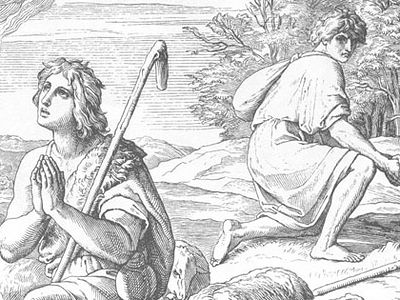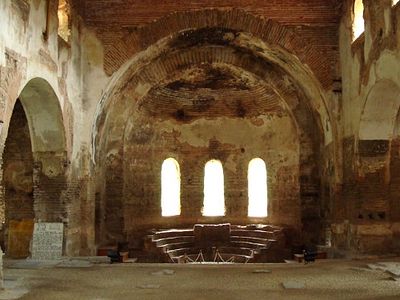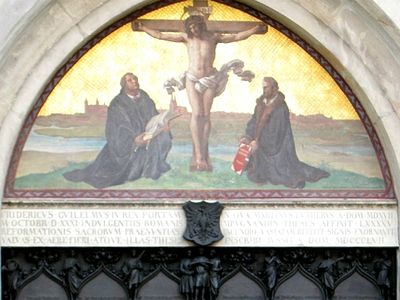 The Divine Liturgy. Photo: M.Rodionov / Expo.Pravoslavie.Ru
The Divine Liturgy. Photo: M.Rodionov / Expo.Pravoslavie.Ru
Some of the most profound words of the Divine Liturgy are rarely heard.
Standing at the south corner of the altar, the deacon quietly utters to the presiding priest: “It is time for the Lord to act.”
This phrase sets the tone for everything in our worship. We are not performing some sort of magical act that assuages the deity in our favor, but are rather joining in with the liturgy of eternity; the liturgy of his own actions in our favor; the liturgy which has, and is, and ever shall be taking place; the liturgy which is the great thanksgiving—the great Eucharist—of God.
The words of the deacon are taken from Psalm 118 (119 in the MT), verse 126:
"It is time for the Lord to act;
they turned away from your law."
While not forgetting the first, we must note the second half of this verse, as well. Despite being unsaid, its implication remains: we have turned away from God’s law. The very reason we are both entering into and celebrating again-and-again this liturgy of the Lord is our own transgression. The failure of Adam, and the subsequent (and repeated) failures of God’s people throughout history has set the stage for not only the Incarnation of Jesus Christ, but also his victory over death itself.
Later in the liturgy, during the Great Anaphora, it is said:
Priest: Let us give thanks to the Lord.
People: It is proper and right.
For what are we giving thanks—the very meaning of “Eucharist”—when we celebrate the Divine Liturgy?
It is the work of the Lord; the endless love of God, poured out on the cross in the self-giving sacrifice of Jesus Christ, by which he has trampled down death by death. And all this, “while we were yet sinners” (Rom. 5:8). There is no wrath or justice in the Cross. Instead, there is spellbinding love—love so amazing that we can barely comprehend it, even as we have “turned away from your law.”
 Photo: V.Khodakov / Expo.Pravoslavie.Ru
Photo: V.Khodakov / Expo.Pravoslavie.Ru
The words of Chrysostom’s Anaphora make our thankfulness plain:
"You brought us into being out of nothing, and when we fell, You raised us up again. You did not cease doing everything until You led us to heaven and granted us Your kingdom to come. For all these things we thank You and Your only begotten Son and Your Holy Spirit; for all things that we know and do not know, for blessings seen and unseen that have been bestowed upon us."
And then what I believe to be the most climactic—if not penultimate—moment of the liturgy:
Priest: We also thank You for this liturgy which You are pleased to accept from our hands, even though You are surrounded by thousands of Archangels and tens of thousands of Angels, by the Cherubim and Seraphim, six-winged, many-eyed, soaring with their wings, singing the victory hymn, proclaiming, crying out, and saying:
People: Holy, holy, holy, Lord Sabaoth, heaven and earth are filled with Your glory. Hosanna in the highest! Blessed is He who comes in the name of the Lord. Hosanna to God in the highest!
Blessed is Christ, indeed, for it is due to his advent, life, death, and resurrection that we can even dare to sing this victory hymn.
The joy of Pascha/Easter is the reason we celebrate (again and again) this Divine Liturgy, joining in as we do with the angelic hosts of God’s throne room in eternity. It is because of his advent that we give thanks; it is because of his triumph over death that we can be given true life from his deified body and blood; it is because of his resurrection that we may sing the victory hymn, for heaven and earth are filled with his glory.
 Photo: A.Goryainov / Expo.Pravoslavie.Ru
Photo: A.Goryainov / Expo.Pravoslavie.Ru
If nothing else, the Divine Liturgy shows us what both gratitude and thanksgiving are all about.
We are brought into being out of nothing, and when we fall, God raises us up again. The love of God is displayed, in that while we were yet sinners, Christ died for us. The Lord has taken action, even though we broke (and continue to break) his law.
By participating in this giving of thanks, we are participating in the life and work of God.




